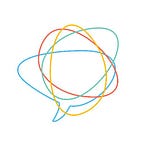Can personality tests be used to improve diversity?
Introvert or extrovert? Cats or dogs? Tea or coffee? We love categorizing ourselves and each other. Doing so can help us figure out who we’re compatible with, what sort of work we’re best suited for, and where we belong. It can also help us understand why we think and behave the way we do.
It’s therefore no wonder that personality tests have been used extensively by HR teams to classify job applicants and employees. And the two-billion-dollar industry is booming. The Myers-Briggs test, which is arguably the most popular personality test, generates tens of millions of dollars annually, and there are entire companies dedicated to assessing people’s personalities.
A convenient shortcut
What they promise is a simplified screening process that will help employers hire the most suitable talent. For example, a candidate who identifies as persuasive and persistent might prove to be a skilled salesperson, while another applicant with great attention to detail and love of numbers could become a talented accountant.
But also, they might not.
Personality tests of all types have been heavily criticized for their inconsistency and inaccuracy. One issue is that it’s common for people to take the same test twice and achieve different results. Another is that two seemingly different people can get identical test results. Moreover, we evolve. Our personalities aren’t fixed, and we have the ability to adapt to various situations. It, therefore, stands to reason that the person who was highly detail-oriented could in fact have made a fantastic salesperson, just as the charismatic, goal-driven candidate could have excelled at accounting.
Other potential hazards
Not only can these tests seriously curtail an individual’s career opportunities, but they can also stifle diversity within an organization. Diversity doesn’t just apply to our gender identities, ethnicities, sexual orientations, or religions; how we behave and solve problems are traits that vary from person to person, too.
Organizations should be careful not to use the data from personality tests to discriminate against certain candidates or employees. Doing so doesn’t just harm workers, but it might also hamstring the company’s growth potential. Diversity of thought has been shown to boost creativity and innovation , which is great for business. Many employers, like Bell and TD, are already harnessing this through rotational programs that grant employees exposure to departments with which they otherwise wouldn’t work so closely. This helps them gain a better understanding of how the organization operates as a whole, while exposing them to new ways of conceptualizing, collaborating, and problem-solving.
The upside
While there are risks to putting too much faith in personality tests, they do have value when the results are taken with a grain of salt and applied more aggregately. For instance, they can help teams collaborate better by outlining differences in communication styles. They can identify gaps in experience and expose proficiencies that are over-represented, which means they certainly can be used to highlight areas where thought diversity is lacking. So rather than being used to hire and fire people, personality tests can be used to better train them.
Let us help you augment your diversity initiatives
The LifeSpeak employee well-being platform is packed with practical resources on diversity and inclusion created by renowned experts. Some of the content they cover includes “Cross-Cultural Communication” and “Measuring the Return on Investment of Diversity and Inclusion”. If you think this information would be helpful in your organization, click the “Book a Demo” button to find out more.
Originally published at https://lifespeak.com on September 5, 2019.
